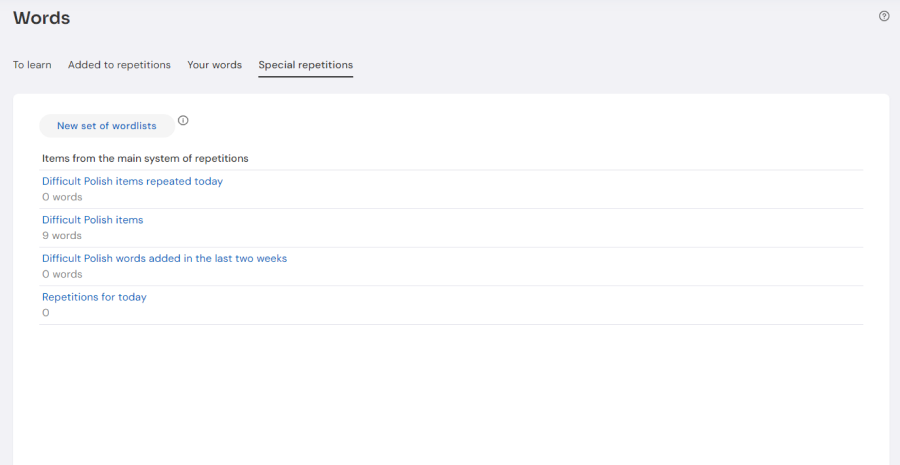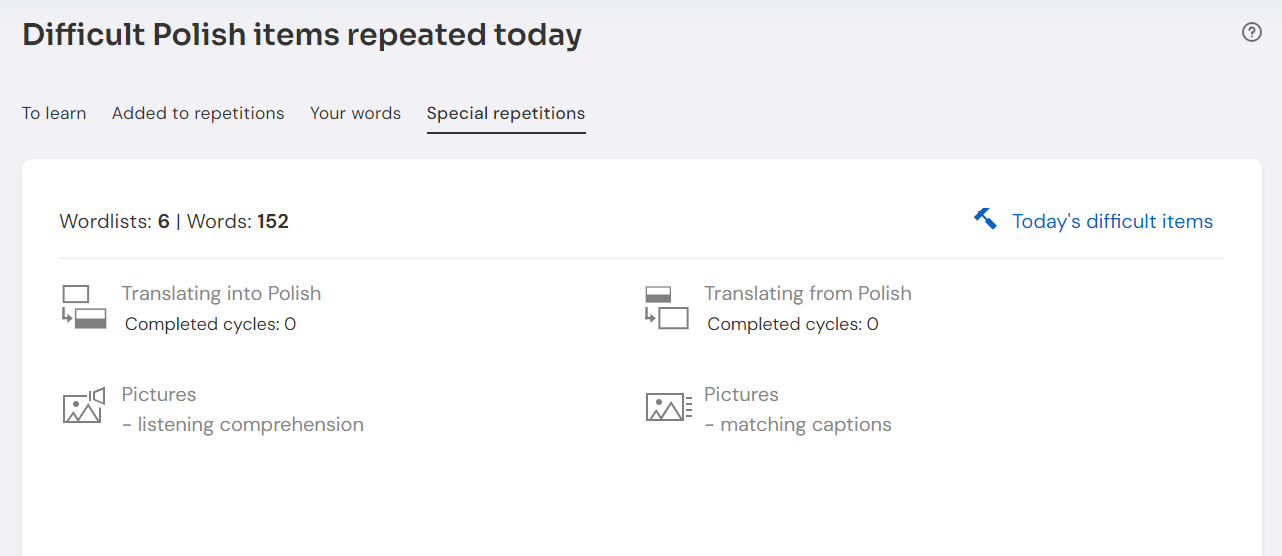The "Special repetitions" module is recommended especially for advanced eTutor users. For the everyday learning process, the standard Repetitions module is certainly sufficient.
The main difference between special and regular repetitions is that you can repeat the special ones as many times as you want. The following repetitions in the set are not scheduled but only queued to be done in the subsequent repetition cycles. You can, therefore, do them anytime.
Special repetitions are divided into cycles. The first cycle contains all wordlist items assigned to the special repetitions set. In the subsequent cycles, there will only be the elements that received low grades in the previous cycles. In this way, you can concentrate on the problematic items, not wasting time on those you know very well.
While revising items within one special repetitions cycle, each item is revised until it gets either grade 2 or grade 3 (i.e., you assess it as mastered by you).
In the Special repetitions module, you can create your own wordlists for revision. While creating a set of special repetitions, choose wordlists (system ones or yours) that you can next revise however you like, irrespective of the main repetition system. This feature can be helpful if you want to revise a particular scope of material, e.g., before an exam.
To create a new special repetitions set, go to Special repetitions, and click New set of wordlists. Name the set, and choose wordlists whose items will be added to the set.

All of the items are revised only in the first cycle of special repetitions. In the following cycles, the system will choose only half of the items and select those most poorly-graded ones (the sum of grades an item has received so far is taken into account). The rest of the items that have not appeared in a given cycle will be displayed in the subsequent cycles. The frequency of displaying an item only depends on how well you remember them. Thanks to this scheme, you can focus on those items that are most problematic to you. Please don't worry if not all items from a wordlist appear in a given repetition cycle.
There are four main modes available for special repetitions:

In English-Polish translations, the only items that are selected are those that have example sentences containing a given English word. It is necessary that, in a question, a sentence containing a given word will appear – otherwise, the user would not know which meaning of the English word they are being asked about.
There are also available special repetitions allowing for revising the most difficult items from the main repetition system:
Special repetitions allow you to quickly master a given scope of material. If you do your repetitions in this way, you do not influence the schedule of repetitions from the main repetition system.
Items from a given list change dynamically as you do your repetitions in the Repetitions tab. Each list can contain up to 200 of the hardest items.
Please remember that the hard-items test is only supposed to be supplementary, and not to substitute the regular repetitions set by the algorythm. It can be helpful to revise the most problematic items, but in the long run, it is usually sufficient that you simply do the repetitions scheduled by the system in the "Repetitions" tab.